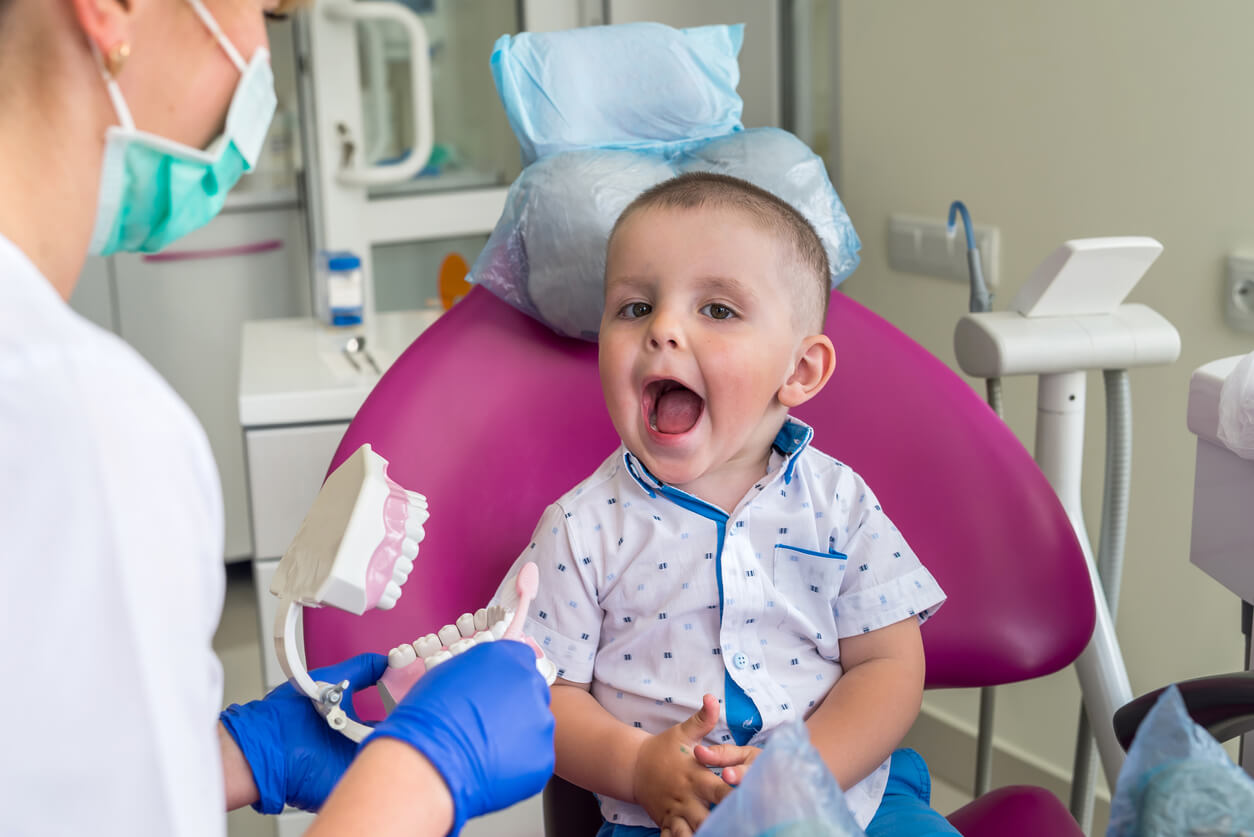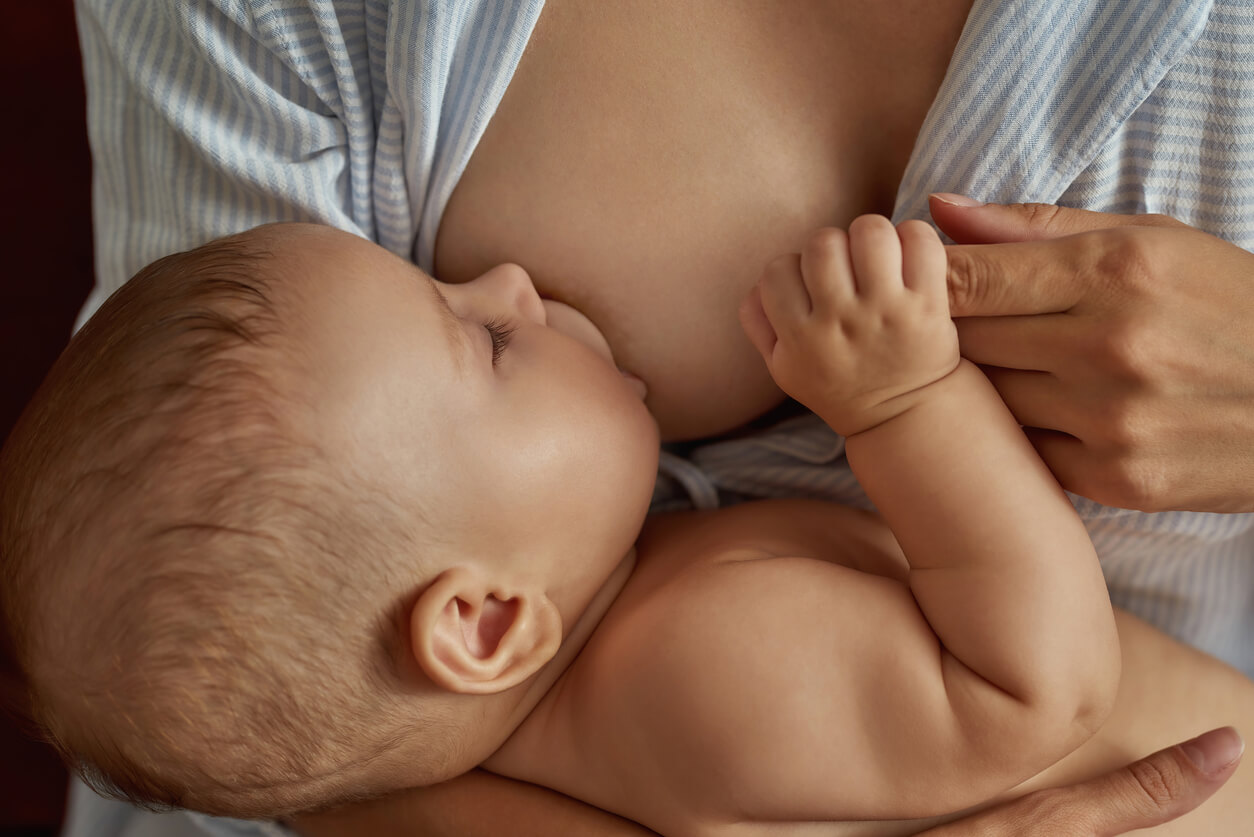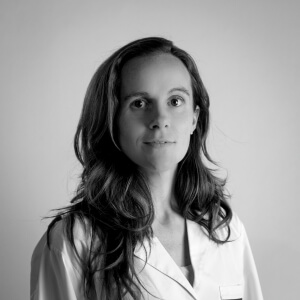Can Breastfeeding Cause Tooth Decay?
The risk of your little one developing cavities during breastfeeding isn't a reason to wean them, as breastfeeding doesn't cause tooth decay.

Breastfeeding a baby has many benefits for both mother and child. However, many women are wrongly advised to wean their children early. The argument is that breastfeeding can cause tooth decay and, therefore, babies can develop cavities if they continue to nurse.
However, this belief is incorrect. In fact, the complexity of the composition of breast milk makes this biological fluid protective for the mouth and prevents the disease. In this article, we’ll tell you everything you need to know about it so that you can breastfeed your child without worry.
How do cavities develop in children?
Early childhood cavities are a complex disease that affects children’s teeth. In these cases, the hard tissues of baby teeth lose their minerals and are destroyed. Bacteria metabolize dietary sugars and produce acids that lower the pH of the mouth. Therefore, the acidity of the oral environment is responsible for the demineralization of the teeth.
Several conditions are necessary for the disease to occur. Namely:
- Presence of teeth: Cavities are a possibility as soon as teeth appear in the baby’s mouth.
- Cariogenic bacteria: For cavities to occur, the child’s mouth must have been colonized by bacteria that are capable of causing the disease, such as Streptococcus mutans. Most of the time, it’s the parents who unintentionally transmit germs from their oral cavity to their children’s mouths.
- Diet: Carbohydrates, especially simple sugars, serve as a substrate for bacteria in the mouth. Juices, sweets, soft drinks, pastries, and ultra-processed foods are the most cariogenic foods.
- Time: The permanence and accumulation of bacteria and food debris on tooth surfaces for long periods of time favor the development of the disease. Infrequent tooth brushing or the consumption of sticky foods increases the risk.
- Individual factors: Some children are more prone to cavities. Lower salivary production as a result of certain diseases or the use of some medications, enamel defects, and tooth surfaces with irregular anatomy are some examples.

The properties of breast milk in babies’ mouths
The World Health Organization recommends exclusive breastfeeding for the first 6 months of life. After that, it should be supplemented with other foods until 2 years of age or until the mother and baby wish. Breast milk is a fluid with great biological complexity. Its composition and physiological action mean that this food isn’t considered cariogenic. On the contrary, we can say that it prevents the development of cavities. These are some of the elements of its composition that influence oral health:
- Defense factors: Some of the components of milk, such as immunoglobulins and certain enzymes, inhibit bacterial growth. In addition, the microbiota in breast milk competes with pathogenic bacteria in the body and achieves what’s known as competitive exclusion.
- Minerals: Calcium, phosphorus, and proteins such as casein make breast milk promote the remineralization of teeth.
- Neutral pH: Arginine and urea, present in breast milk, favor the increase of salivary pH and, therefore, prevent the loss of minerals from tooth surfaces.
- Lactase enzyme: Synthesizes lactose in the small intestine. This means that the bacteria in the mouth won’t have any glucose to metabolize.
- Salivary secretion: This is a natural defense element against cavities.
The sucking mechanism, another protective factor
When taking milk from the breast, the nipple is located in the posterior part of the mouth. The milk is deposited away from the teeth, which triggers immediate swallowing.
This doesn’t happen with bottle feeding, because when the baby sucks, the milk falls in the front part of the mouth and accumulates around the teeth. At the same time, if the nipple isn’t actively sucked by the baby, the milk doesn’t flow continuously.

The relationship between breastfeeding and cavities in children
According to the Spanish Association of Pediatrics (AEP), there’s no scientific evidence that demonstrates that breastfeeding can cause tooth decay. In fact, several scientific reviews conclude that this type of feeding isn’t a risk factor for the development of cavities.
Breastfeeding doesn’t cause cavities. However, there are other factors associated with infant feeding that can favor the appearance of the disease in children:
- Poor dental hygiene: The absence of tooth brushing, or brushing inadequately or infrequently, favors the accumulation of bacteria and food debris.
- Complementary feeding: When semisolid and solid foods are incorporated into the baby’s diet, there begins to be a great availability of substrates for bacteria in the mouth. If this food contains simple sugars, such as those contained in sweets, candies, ultra-processed foods, juices, and soft drinks, the risk is much greater.
- Frequent nighttime feeding: During the night, saliva production is lower. This reduces the protective and cleansing effect of this fluid. If the baby suckles many times during the night and the mouth isn’t properly sanitized, the risk of cavities increases.
- Early transmission of bacteria: Practices such as blowing on or tasting the baby’s food, sharing utensils, cleaning the pacifier with saliva, or kissing babies on the mouth favor the transmission of pathogenic bacteria. This risk is higher if the parents have active cavities.
- Insufficient fluoride exposure: Fluoride helps strengthen tooth enamel and prevent cavities. Therefore, toothpastes containing fluoride should be used when brushing children’s teeth.
- Lack of proper advice: Many parents are unaware of the risk of cavities in their children’s teeth from the moment they appear in the mouth. Seeing a pediatric dentist as early as the baby’s first year of life allows them to learn how to keep their child’s mouth healthy.
Breastfeeding without cavities is possible
As we told you, breastfeeding, by itself, doesn’t cause tooth decay. Therefore, the risk of your little one developing cavities isn’t a reason to wean your child.
So, you can breastfeed your baby with peace of mind, as your milk doesn’t cause any damage to your child’s mouth. With breastfeeding and proper oral hygiene, regular visits to the pediatric dentist, and a healthy complementary diet, you’ll take care of your baby’s oral health.

